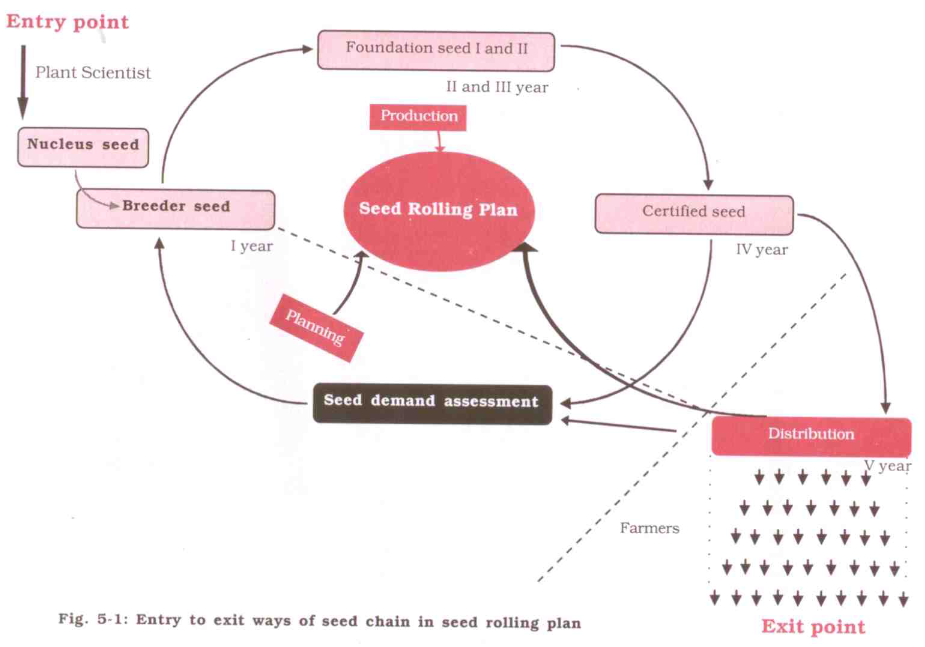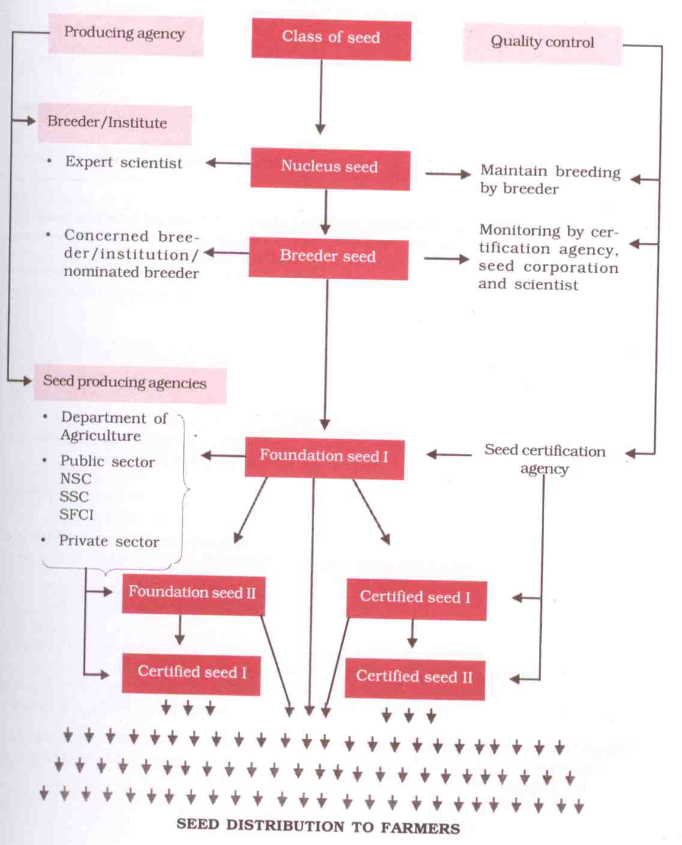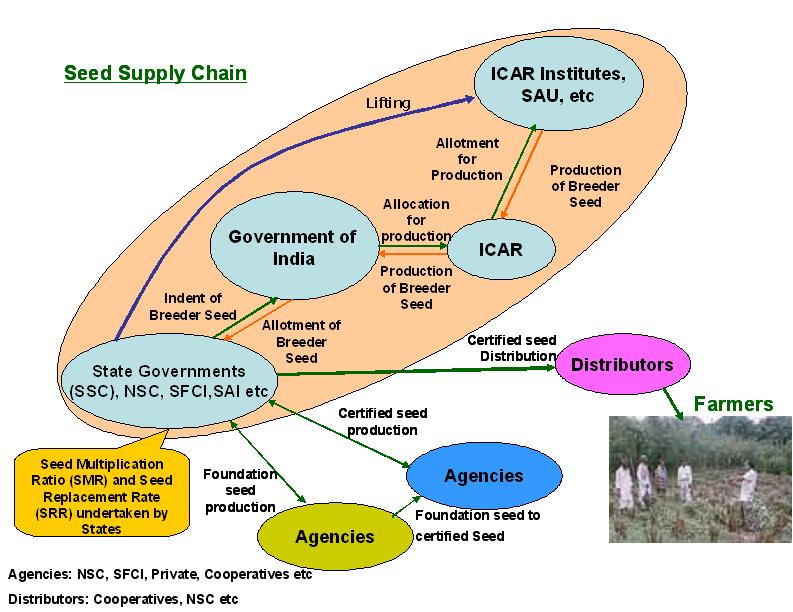Classes of seeds
Classes of seeds
There are four generally recognized classes of seeds. They are
- Breeder seed
- Foundation seed
- Registered seed
- Certified seed
The basis of seed multiplication of all notified varieties/hybrids is the Nucleus seed.
Definition of seed classes
Nuclear seed : This is the hundred percent genetically pure seed with physical purity and produced by the original breeder/Institute /State Agriculture University (SAU) from basic nucleus seed stock. A pedigree certificate is issued by the producing breeder.
Breeder seed : The progeny of nucleus seed multiplied in large area as per indent of Department of Agriculture and Cooperation (DOAC), Ministry of Agriculture, Government of India, under supervision of plant breeder / institute / SAUs and monitored by a committee consisting of the representatives of state seed certification agency, national / state seed corporations, ICAR nominee and concerned breeder. This is also hundred percent physical and genetic pure seed for production of foundation seed. A golden yellow colour certificate is issued for this category of seed by the producing breeder.
Foundation seed : The progeny of breeder seed produced by recognized seed producing agencies in public and private sector, under supervision of seed certification agencies in such a way that its quality is maintained according to prescribed field ad seed standards. A white colour certificate is issued for foundation seed by seed certification agencies.
Registered seed : Registered seed shall be the progeny of foundation seed that is so handled as to maintain its genetic identity and purity according to standard specified for the particular crop being certified. A purple colour certificate is issued for this category of seed.
Certified seed : The progeny of foundation seed produced by registered seed growers under supervision of seed certification agencies to maintain the seed quality as per minimum seed certification standards. A blue colour certificate is issued by seed certification agency for this category of seed.
Labelled Seed : The seed notified under Section 5 of the Seeds Act, 1966, such seed sold in the market has to be labelled as prescribed under Section 6(a) and (b) of the Seeds Act Such seed is called Labelled Seed.
The foundation and certified seeds can be multiplied at stage 1 and II, but the reproduction cannot exceed three generations after breeder seed.
Difference between certified seed and truthful labeled seed
| Certified seed | Truthful labelled seed |
| Certification is voluntary. Quality guaranteed by certification
agency.
|
Truthful labelling is compulsory for notified kind of varieties. Quality guaranteed by producing agency |
| Applicable to notified kinds only | Applicable to both notified and released varieties |
| It should satisfy both minimum field and seed standards | Tested for physical purity and germination |
| Seed certification officer, seed inspectors can take samples for inspection | Seed inspectors alone can take samples for checking the seed quality. |
Seed Supply chain in India
Seed Rolling plan

Production and distribution of Notified Seeds

Source : SeedNet India portal
Related links
निमणे सुदारीत : 5/4/2023
This topic provides information on Package of prac...
This topic provides information on Package of prac...
This topic provides information about Fenugreek.
This topic provides information on Production tech...

